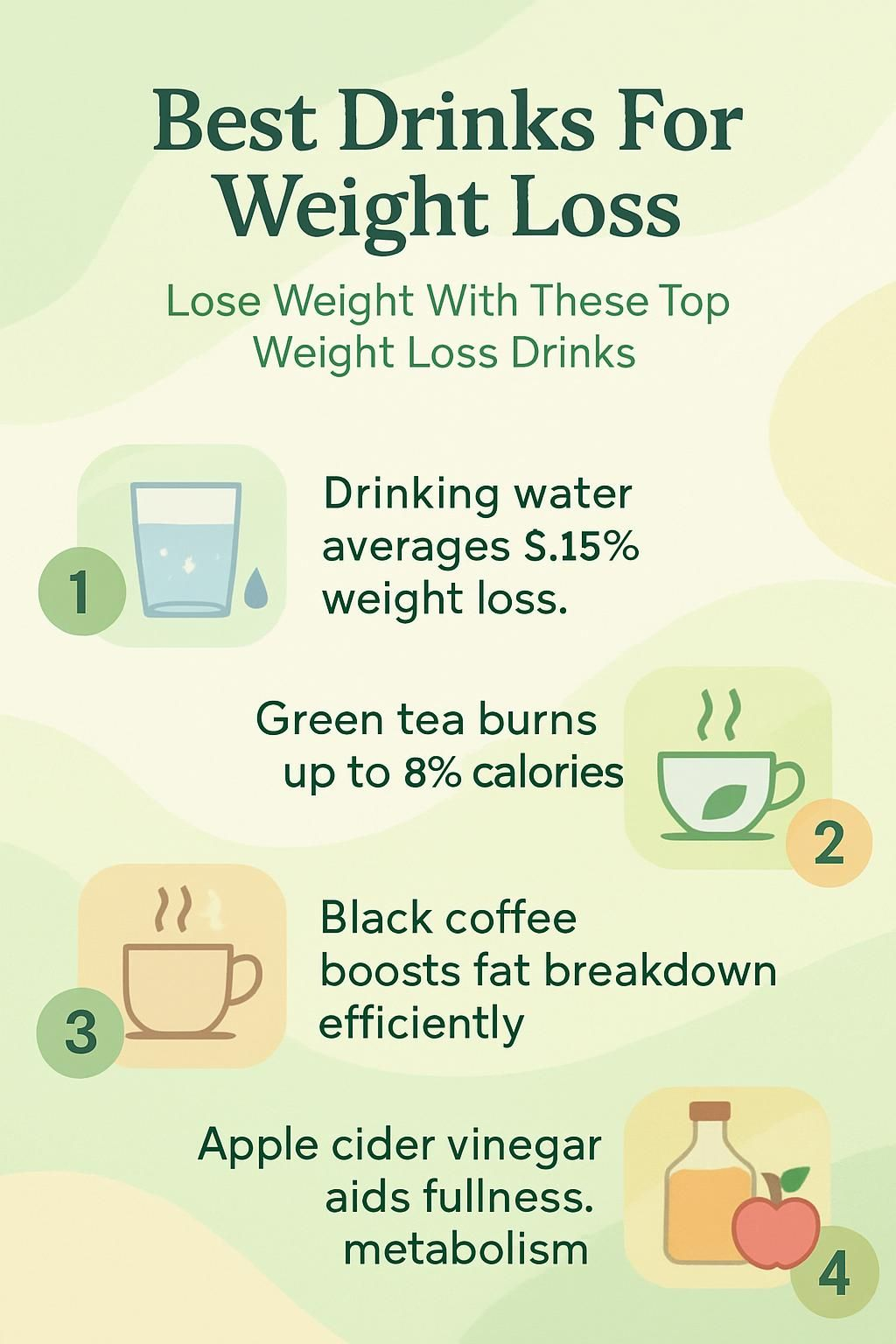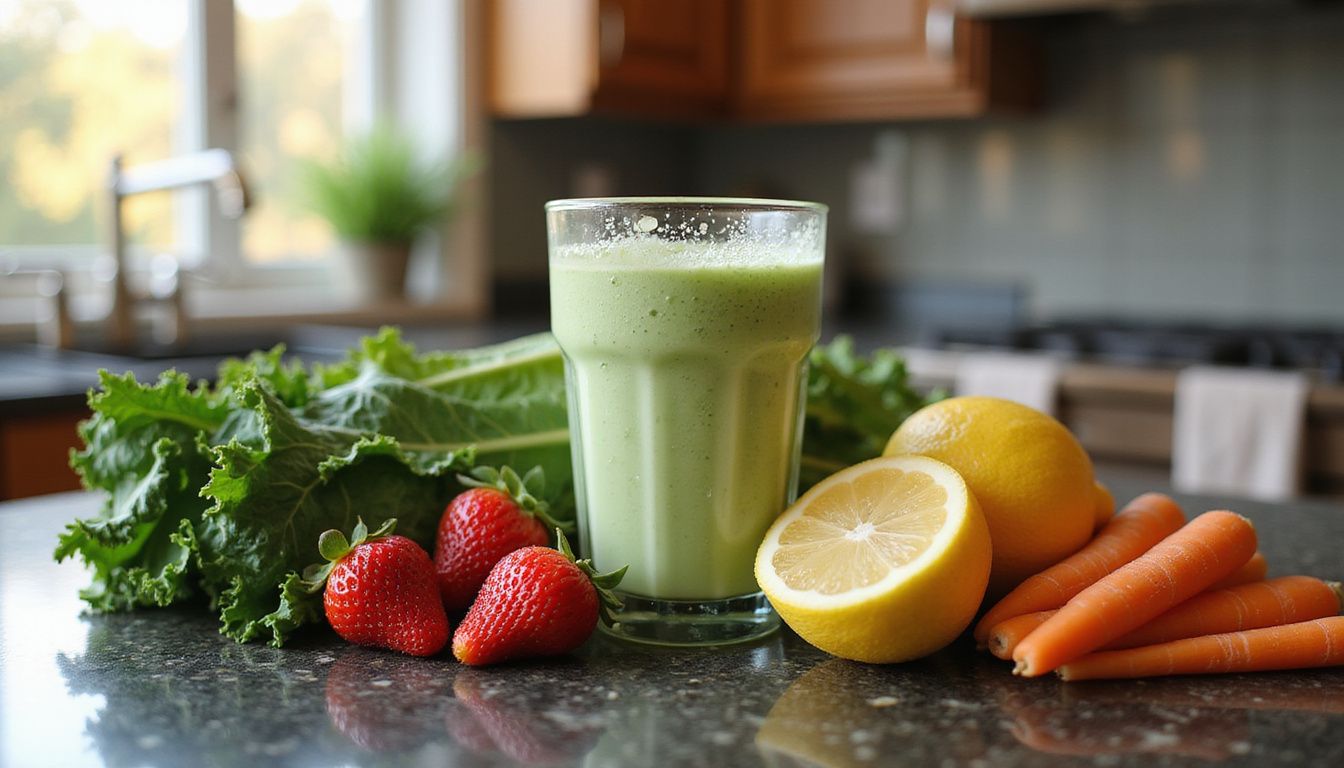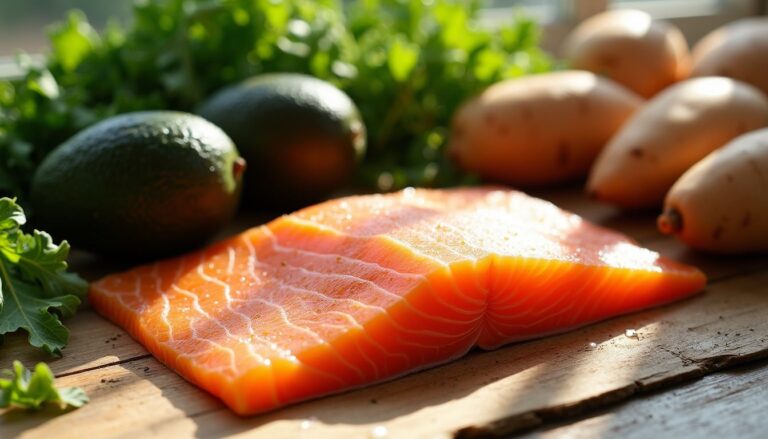Best Drinks For Weight Loss: Lose Weight With These Top Weight Loss Drinks
Our Nutrition Assistant AI Suite will transform your body. You will lose fat, get toned, and build muscle. Gain confidence and optimal health.
If you are trying to lose weight, the drink in your glass matters as much as the food on your plate. Smart, low-calorie choices can help you feel full, steady your energy, and trim daily calories. Simple options like water and tea are proven drinks for weight loss and are easy to add to your routine.
This guide to the Best Drinks For Weight Loss shows which beverages support weight management, how green tea or black coffee may help you burn calories, and why high-sugar drinks work against your goals. You will also learn how to build a daily drink plan you can stick with.
Ready to refresh your routine with a weight loss drink that works? Keep reading to see what actually helps and what to skip.
Key Takeaways
- Drinking more water can raise metabolism, reduce bloating, and cut calories. One study found an average 5.15 percent drop in body weight with higher intake (Dennis EA et al., 2010).
- Green tea provides EGCG and other polyphenols that may increase calorie burning by 3 to 8 percent. Two to three cups per day is a practical target.
- Black coffee delivers caffeine, which boosts thermogenesis, the process of turning calories into heat. Plain coffee works best, without sugar or creamers.
- Apple cider vinegar, 1 to 2 tablespoons diluted in water, may aid fullness and metabolism. Use carefully to avoid stomach upset and protect tooth enamel.
- Choosing low-calorie, low-sugar options such as protein shakes or cucumber parsley juice supports appetite control and long-term weight management (Hursel & Westerterp-Plantenga, 2010).

Benefits of Weight Loss Drinks

Weight loss drinks can help you burn calories and stay satisfied between meals. They are usually low in sugar and low in calories, which helps you cut intake without feeling deprived.
How do weight loss drinks boost metabolism?
Caffeine in coffee increases the number of calories you burn through thermogenesis, which is heat production from food. A cup of black coffee can raise energy use for several hours.
Green tea contains EGCG and polyphenols, plant nutrients that support fat breakdown for fuel. Research shows green tea extract can increase calorie burn by several percent.
Black tea combines caffeine with helpful plant compounds that support metabolism and gut health. Apple cider vinegar provides acetic acid, which has been linked to improved metabolic markers in some studies. Pineapple juice offers bromelain, an enzyme that may aid digestion, though it can add sugar, so use small amounts.
Cinnamon tea is a soothing, low-calorie choice at night. Protein shakes require more energy to digest, a concept called the thermic effect of food, so they can give a small metabolic lift.
“The right beverage can quench thirst and nudge your natural calorie-burning engines.”
Even kombucha may help because its probiotics support a healthier gut. Choose unsweetened bottles to avoid extra sugar. Next, see how smart drinks help with appetite control.
How can weight loss drinks help control appetite?
Some drinks lower hunger hormones or slow digestion, which helps you feel full longer. Coffee can reduce ghrelin, the hormone that signals hunger. Protein shakes trigger GLP-1, a hormone that boosts fullness and reduces cravings.
Kefir is an easy ready-to-drink option with protein and probiotics for digestive health. Vegetable juices and high-fiber smoothies fill the stomach and slow digestion. A smoothie with avocado feels very filling due to healthy fats, which can help you skip afternoon snacks.
Casein-rich options, such as a blended cottage cheese shake, can reduce late-night cravings. Water also curbs snacking, since thirst is often mistaken for hunger. A glass of water before meals lowers calorie intake without adding any calories.
Drinks with little or no added sugar work best. Sweetened beverages spike blood sugar, then swing it down, which can drive more cravings later.
Why is hydration important for weight loss?
Good hydration supports nearly every step of a healthy weight plan. Water reduces overall calorie intake because it replaces sugary beverages and fills you up for free.
Higher water intake has been linked to a meaningful drop in body weight in people with overweight. Hydration supports metabolism, digestion, and nutrient absorption. Drinks like cucumber parsley juice provide water plus vitamins and minerals. Potassium-rich choices, including unsweetened kefir, may help ease bloating and water retention.
Choosing water and other calorie-free drinks is consistent with major nutrition guidelines that aim to control hunger, trim calories per drink, and support low-carbohydrate eating when needed.
How to Choose the Best Weight Loss Drinks
Many products promise results, but not all deliver. Read the Nutrition Facts label, then favor low calorie or keto friendly options that match your goals.
Why should you avoid added sugars in weight loss drinks?
Added sugar in fruit juice, energy drinks, meal replacement shakes, and flavored lattes pushes up calories quickly. A small bottle can hold more than 30 grams of sugar, which is more than the daily limit suggested by the American Heart Association for many adults.
High-sugar drinks make it hard to burn more calories than you consume. Sugar adds empty calories and disrupts appetite control. Check the label for added sweeteners or syrups before choosing any ready-to-drink shake or powder drink mix.
My own progress improved after I swapped a sugary latte for green tea, and chose unsweetened kefir, club soda with lemon, and black coffee instead of diet soda or sweet kombucha.
“I saw steady progress after replacing my sugary morning latte with plain green tea,” shares nutritionist Anna Lee.
Picking low sugar, low carb beverages is a strong strategy, especially if you manage diabetes or follow calorie restriction plans.
What makes a weight loss drink nutrient-rich?
A nutrient-rich drink offers more than hydration. A high protein shake or soy milk supplies complete protein, which helps repair muscle and improve fullness.
Kefir and kombucha add probiotics for digestion. Green vegetable juice provides dietary fiber, which slows hunger signals in the gastrointestinal tract. Cucumber-parsley juice adds vitamin C and minerals with very few calories.
Choose options that are low in calories but high in nutrients. Lemon water, parsley juice, and black tea offer helpful antioxidants. Green tea polyphenols may increase energy burn during dieting, according to systematic reviews. Always scan for added sugar; sweet drinks add calories fast.
How does calorie content affect your choice of weight loss drinks?
Once you find nutrient-rich options, check calories. Drinks with fewer calories help you maintain a daily deficit. Water has zero calories, which makes it the most effective choice.
Black coffee, carbonated water, and herbal teas are also very low in calories but still offer flavor. High-calorie drinks, such as sweetened juice drinks or regular soda, slow fat loss or cause weight gain. Protein shakes can be helpful, but some brands add sugar and creamers that raise calories fast.
Milk adds about 150 calories per cup. Beer, wine, margaritas, vodka spritzers, and punch drinks often deliver 100 to 200 calories per serving. Read the label to keep totals on track.
Swap fruit juice for low sugar kombucha, or replace high-calorie cocktails with diet sodas or sparkling water with citrus slices. These simple changes keep taste high without hurting your goals, including after bariatric surgery or during a keto-friendly plan.
Water: The Ultimate Weight Loss Drink
Drinking enough water each day is one of the easiest ways to reduce calories and support weight loss. It fills the stomach, sharpens focus, and keeps your body running smoothly.
What are the benefits of staying hydrated?
Proper hydration helps regulate body temperature and keeps metabolism efficient. Drinking enough water supports natural detoxification through urine and sweat, which helps remove metabolic waste.
Hydration can lessen water retention and bloating, which helps you feel lighter. Muscles perform better when cells have the water they need. Potassium-rich drinks like cucumber parsley juice and soy milk substitutes can help balance fluids and reduce puffiness.
Water increases satiety, so you feel full longer and crave fewer high-calorie snacks. Keeping a bottle at your desk or in your bag makes sipping during the day easy. I noticed better energy and clearer skin after adding two extra glasses of water daily.
| Benefit | Scientific Reason | Practical Example |
|---|---|---|
| Regulates body temperature | Supports metabolism | More energy for exercise |
| Reduces bloating | Helps balance fluids | Less puffy feeling |
| Aids detoxification | Removes waste via kidneys and sweat | Fewer dehydration headaches |
| Boosts satiety | Helps control appetite | Fewer calories consumed |
| Improves digestion | Supports nutrient absorption | Smoother recovery after surgery |
How does water help with weight loss?
A glass of water before meals can help you feel full and eat fewer calories. Studies show increased water intake may reduce body weight by about 5 percent in people trying to lose weight.
Water contains zero calories. Replacing soda, sweet tea, or light beer with plain water lowers daily intake right away. Drinking water can also raise resting energy expenditure for a short time, which supports fat burning even at rest.
Health agencies encourage water as a daily habit. It supports digestion, nutrient transport, and appetite control. Many people find that choosing water instead of sweet juice helps them enjoy fruit’s taste during meals without extra sugar.
Green Tea
Green tea is rich in polyphenols, which are protective plant compounds. It may help you burn fat and speed up metabolism without adding calories.
How do polyphenols in green tea boost metabolism?
Green tea provides EGCG, a polyphenol that promotes fat oxidation, which means using fat for energy. This process can raise calorie burn, even while resting.
EGCG also works as an antioxidant that reduces inflammation linked to fat storage and may improve insulin sensitivity. Reviews suggest green tea can also benefit your gut, which supports a healthy metabolism.
When is the best time to drink green tea for weight loss?
Drink green tea 30 minutes before meals to help curb appetite. Many people see results with two to three cups spaced across the morning and early afternoon.
You can also drink it after meals to support digestion. Avoid cups late at night because of the caffeine. Flavor with a squeeze of lemon or a hint of vanilla for variety without added sugar.
I have had steady success making green tea part of my daytime routine with water, which made it easier to stay consistent.
Black Coffee
Black coffee is naturally low in calories and provides caffeine that can support fat burning. It is a practical choice if you want to limit sugar and cream.
How does caffeine help burn fat?
Caffeine stimulates your central nervous system, which increases thermogenesis and calorie use. It also helps your body break down fatty acids so you can use stored fat for fuel during activity.
A higher metabolic rate means more calories burned over time. Caffeine can reduce fatigue and improve focus, which may help you work out harder. Coffee and black tea supply caffeine without the added sugars found in many mixed drinks.
What are the best ways to drink black coffee for weight loss?
Drink it plain. Skip sugar, honey, cream, and syrups to avoid extra calories. Aim for two to three cups per day, which balances benefits and sleep quality for most people.
Have a cup in the morning to spark your metabolism or before a workout for an extra lift. Avoid late-night coffee so you do not disrupt sleep, which is key for weight control. Swapping a sweet breakfast drink for black coffee can make daily calorie tracking much easier.
Next up, see how apple cider vinegar can fit into your routine.
Apple Cider Vinegar Drinks
Apple cider vinegar contains acetic acid, a compound that may support fullness and metabolic health when used in small, diluted amounts.
How does acetic acid reduce fat storage?
Acetic acid appears to influence pathways that support fat oxidation and energy use. Early studies link it with improved metabolic markers, especially alongside calorie control. It can also help you feel full longer and may slow stomach emptying, which can reduce snacking.
Stable blood sugar and insulin responses are helpful for appetite control. Together, these effects may reduce the chance that extra calories are stored as fat.
How can you prepare apple cider vinegar drinks at home?
- Mix 1 to 2 tablespoons of apple cider vinegar with 8 ounces, about 240 ml, of water.
- Add a squeeze of fresh lemon juice for flavor and vitamin C.
- If needed, sweeten lightly with stevia or a small amount of honey. Avoid added sugar.
- Drink before meals to promote fullness and support digestion.
- Use a straw to protect your teeth from acidity.
- Do not exceed 1 to 2 tablespoons per serving to reduce the risk of nausea or reflux.
- Try adding ginger or cinnamon for extra flavor and digestive comfort.
- Make it fresh instead of using pre-packaged versions that may contain additives.
- Cold water makes a refreshing version in summer, which can help you stay hydrated.
If you have reflux, kidney disease, or dental issues, talk with a healthcare professional before using vinegar drinks regularly.
Ginger Tea
Ginger tea may help settle your stomach, reduce cravings, and support comfortable digestion. It is a warm, low-calorie drink that fits any time of day.
How does ginger tea suppress appetite and aid digestion?
Compounds in ginger can reduce hunger signals and increase thermogenesis. That combination may help you eat fewer calories at meals.
Ginger also stimulates digestive enzymes and supports smooth gut movement, which can ease constipation. Its anti-inflammatory effects may reduce discomfort, and more stable blood sugar can help limit cravings.
Many people find ginger tea soothes nausea, which can make nutrition changes easier to follow.
What is an easy way to make ginger tea at home?
- Slice or grate about 1 inch of fresh ginger root.
- Simmer the ginger in 2 cups of water for 10 to 15 minutes to extract flavor and active compounds.
- Strain into a cup to remove the pieces.
- Add lemon juice for vitamin C and a bright taste.
- Sweeten lightly with honey if desired, keeping added sugar low.
- Drink warm before meals to help control appetite.
- Refrigerate leftover tea for up to two days, then reheat gently.
- For variety, add mint or a cinnamon stick during the simmer.
- A thin cucumber slice makes a cool garnish and adds a fresh hint.
Use fresh ginger for the best flavor and effect.
Lemon and Honey Water
Lemon and honey water is simple, refreshing, and light in calories. It brings a gentle vitamin C boost to your morning routine.
How does vitamin C in lemon water support weight loss?
Vitamin C supports fat use during physical activity and helps your immune system during dieting. As an antioxidant, it helps reduce inflammation tied to excess fat storage.
People low in vitamin C often have higher body fat. Lemon water offers vitamin C with few calories. If you follow a plant-forward diet, vitamin C also helps your body absorb iron from plants.
Starting the day with warm lemon honey water can feel energizing and satisfying compared with a sugary punch or sweet cocktail.
What is a simple recipe for lemon honey water?
- Combine one teaspoon of fresh lemon juice with warm water in a cup.
- Add half a teaspoon of raw honey.
- Avoid very hot water, which can affect honey’s natural enzymes.
- Stir until the honey dissolves.
- Drink first thing in the morning to kick-start hydration and metabolism.
- Repeat at night only if it fits your sleep and calorie plan.
- Skip extra sweeteners to keep calories low.
- Choose this drink instead of sweet cocktails or punch to avoid added sugar.
- Make it fresh each time for the best taste.
Adjust the lemon and honey to your taste while keeping calories modest.
Cinnamon Tea
Cinnamon tea may help steady blood sugar and support fat burning. It is comforting and easy to prepare at home.
How does cinnamon tea stabilize blood sugar and promote fat burning?
Cinnamon tea supports more stable glucose levels. Stable blood sugar reduces insulin spikes that encourage fat storage.
Polyphenols in cinnamon may improve insulin sensitivity and raise metabolic efficiency. Better control can reduce late-night cravings and support steady energy. Its anti-inflammatory actions also help keep your metabolism on track.
How can you prepare cinnamon tea effectively?
- Simmer 1 to 2 Ceylon cinnamon sticks, or 1 teaspoon of ground cinnamon, in 2 cups of water for 10 to 15 minutes.
- Strain before serving so the tea is smooth.
- Add a small amount of honey if you want light sweetness, but avoid sugar.
- Include a lemon slice for vitamin C and brightness.
- Drink before bed if the gentle spice helps you relax.
- Store extra tea in the fridge for up to two days.
- Enhance with ginger or cloves for more antioxidants and flavor depth.
Choosing Ceylon cinnamon can reduce the intake of coumarin, a natural compound found in higher amounts in cassia cinnamon.
Cucumber and Parsley Juice
Cucumber and parsley juice hydrates your body and can help reduce bloating. Think of it as a crisp reset after a salty day.
What are the detox and hydration benefits of cucumber parsley juice?
This juice has high water content for hydration and kidney support. Parsley acts as a natural diuretic that helps your body release excess fluid, which can ease bloating.
It also delivers vitamins A, C, and K, plus minerals like iron and magnesium. Antioxidants in parsley help protect your cells. Fiber from cucumber supports digestion while keeping calories low.
How do you make cucumber parsley juice easily?
- Wash one medium cucumber and a handful of fresh parsley.
- Slice the cucumber, leaving the peel on for fiber and antioxidants.
- Blend cucumber, parsley, and 1 cup of water until smooth.
- Add lemon juice for vitamin C and bright flavor.
- Strain through a fine mesh strainer or cheesecloth for a lighter texture.
- Serve over ice or chill before drinking.
- Optional, add a small piece of ginger before blending for digestion support.
- Store in a glass container for up to 24 hours.
- Drink in the morning to rehydrate and support gentle fluid balance.
Use organic produce when possible to reduce exposure to pesticide residues.
Protein Shakes
High-protein shakes help control hunger and protect muscle while you are losing fat. They are convenient after workouts or as a planned snack.
Why are high-protein drinks important for weight loss?
Protein shakes help you stay full, which reduces snacking and daily calories. Protein triggers hormones like GLP-1 that increase satiety.
Protein also helps maintain muscle during a calorie deficit. More lean mass supports a higher metabolic rate. A shake before bed can feed muscles overnight, which supports recovery and steady progress.
How do you choose the right protein powder?
Pick powders with few added sugars or artificial ingredients. Pea, soy, and whey are all effective for muscle repair and appetite control.
Look for at least 15 to 20 grams of protein per serving. Choose brands with clear labels and third-party testing. If you follow vegan or gluten-free diets, check the ingredient list to match your needs.
Fiber is a plus because it boosts fullness. Avoid high-calorie fillers and heavy flavors. If you have a medical condition or take medicines, speak with a healthcare professional before starting a supplement.
Kefir
Kefir is a fermented milk drink rich in probiotics, which are live, helpful bacteria. It can support digestion and may help with weight control.
What probiotic benefits does kefir offer for digestion?
Kefir often contains more diverse probiotic strains than yogurt. These strains help balance your gut microbiota, which supports digestion and nutrient absorption.
Regular kefir intake may reduce inflammation and support healthy bowel habits. Some research links daily use with improved hunger signals through the gut-brain axis. When I added plain kefir in the morning, I noticed less bloating and more comfort while cutting calories.
Probiotics can also support the immune system, which helps you stay on track with your plan.
Is kefir a good late-night drink for weight loss?
Kefir provides about 9 grams of protein per cup to help you feel full. It contains casein, a slow-digesting protein, which can support overnight muscle repair.
Choose unsweetened kefir to keep sugar low. Its potassium may help with water balance, which can ease nighttime bloating. I like blending kefir with berries before bed for extra fiber and flavor.
If dairy bothers you, try lactose-free kefir or a probiotic non-dairy drink instead.
Fenugreek Water
Fenugreek water is a simple, traditional option that may help regulate appetite and support a steady metabolism.
How does fenugreek water regulate metabolism and appetite?
Fenugreek seeds provide soluble fiber that slows digestion and increases fullness. Many people find fewer cravings and easier portion control with regular use.
Active compounds in fenugreek may support a mild rise in metabolic rate. It can also support stable blood sugar levels, which helps reduce sudden hunger swings.
How can you make fenugreek water at home?
- Measure 1 to 2 teaspoons of whole fenugreek seeds.
- Add the seeds to 8 ounces of water in a glass.
- Soak overnight at room temperature.
- Strain the water in the morning.
- Drink on an empty stomach to support appetite control.
- Add a squeeze of lemon for flavor and vitamin C.
- Refrigerate extra soaked seeds if you plan ahead.
- For a twist, blend soaked seeds with cucumber and cold water.
- Skip added sugar to keep calories low.
- Use whole seeds for the greatest benefit.
- I noticed fewer early-morning cravings after making this part of my routine.
If you take diabetes medicines or blood thinners, ask your clinician before using fenugreek regularly.
Black Tea
Black tea offers helpful antioxidants and a moderate caffeine lift. It is an easy swap for soda or sweetened beverages.
What antioxidants and fat-burning properties does black tea have?
Black tea contains polyphenols and flavonoids that fight free radicals and may improve metabolic health. Caffeine in black tea can increase metabolism and support fat oxidation.
Some research links regular intake with a smaller waist and lower body fat. Polyphenols may also support the growth of beneficial gut bacteria and improve insulin sensitivity, which helps with fat loss over time.
How can you incorporate black tea into your daily routine?
Drink black tea after meals to support digestion. Limit to three cups per day to manage caffeine.
Skip sugar and creamers to keep calories low. Try iced black tea with lemon in warm weather. Brew a pitcher for the fridge so a low-calorie choice is always ready.
Pair your tea with a fiber-rich snack, such as fruit or nuts, to increase fullness. For variety, simmer with ginger or cinnamon.
Tips for Incorporating Weight Loss Drinks into Your Diet
Timing and simple habits make these beverages more effective. Aim for consistency that fits your day.
When is the best time to drink weight loss beverages?
Have water or green tea about 30 minutes before meals to help reduce portions. Start your morning with lemon honey water, fenugreek water, or a green vegetable juice to set the tone for the day.
Use black coffee or green tea before workouts to increase energy and fat burn. After meals, black tea can help with digestion. Before bed, choose kefir or a casein-rich smoothie for overnight satiety and muscle repair.
I like ginger tea about 20 minutes before lunch because it takes the edge off hunger and supports better choices in the afternoon.
Drink a protein shake within an hour after exercise to aid recovery. Herbal teas after dinner can reduce late-night snacking.
How can you combine weight loss drinks with a balanced diet?
Pair drinks with high-fiber foods, such as oatmeal or big salads, to boost fullness. Include protein-rich options, like a whey shake at breakfast or a Greek yogurt smoothie at lunch, to protect muscle.
Choose water and cucumber juice around meals for better digestion and hydration. Avoid drinks with added sugar, which raise calories and drive cravings.
Rotate beverages during the week so you get variety without boredom. Pick kefir for gut support or lemon water for a vitamin C boost. I often sip green tea with a fiber snack in the afternoon to avoid cravings later.
Use meal replacement shakes only with guidance from a registered dietitian, since balance matters for long-term success. Track calories from food and drinks, because liquid calories add up fast.
Summary: Time your drinks around meals and workouts, favor low-calorie options, match choices to your goals, limit added sugar, seek expert advice before swapping meals, and track all calories.
Conclusion
Choosing the best drinks for weight loss can speed progress and make daily choices easier. Water, green tea, black coffee, and other nutrient-rich beverages support metabolism, hydration, and appetite control. Studies suggest these options help you burn calories while improving digestive health and energy levels [1][2].
Start with simple swaps, such as a glass of water before meals or unsweetened tea in place of soda. Small, steady changes add up. This article is for education only. If you are pregnant, have diabetes, kidney disease, or take medicines, talk with a healthcare professional or dietitian before changing your drink plan.
References:
[1] Dennis EA, et al., “Water Consumption Increases Weight Loss During a Hypocaloric Diet Intervention in Middle-aged and Older Adults,” Obesity (Silver Spring), 2010;18(2):300-307.
[2] Hursel R & Westerterp-Plantenga MS, “Thermogenic Ingredients and Body Weight Regulation,” Int J Obes (Lond), 2010;34(4):659-669.
FAQs
1. What are the best drinks for weight loss supported by research?
Water, unsweetened green tea, black coffee, and vegetable juice rank among the top drinks for weight loss. Studies show that water can boost metabolism and help control appetite. Green tea contains catechins which may increase fat burning according to clinical trials.
2. How do these drinks help people lose weight?
These beverages often contain few or no calories and can promote satiety. For example, drinking water before meals has been shown to reduce calorie intake in adults. Green tea’s antioxidants may support metabolic health while black coffee provides caffeine that could enhance energy use.
3. Are there any risks with using these drinks as part of a diet plan?
Most healthy adults tolerate moderate amounts of water, green tea, and coffee well; however, too much caffeine from coffee or certain teas might cause sleep problems or raise heart rate based on medical reviews. Vegetable juices should be low in sodium to avoid excess salt intake.
4. Can you share a real-life example of how someone used these drinks for weight management?
A nutritionist shared her experience replacing sugary sodas with herbal teas and sparkling water during her own wellness journey; she noticed fewer cravings and gradual fat reduction over several months without feeling deprived.
Summary: Choosing low-calorie options like water, unsweetened teas, plain coffee, or vegetable juice supports healthy habits backed by evidence-based studies; they fit most balanced diets when consumed mindfully within daily needs.







